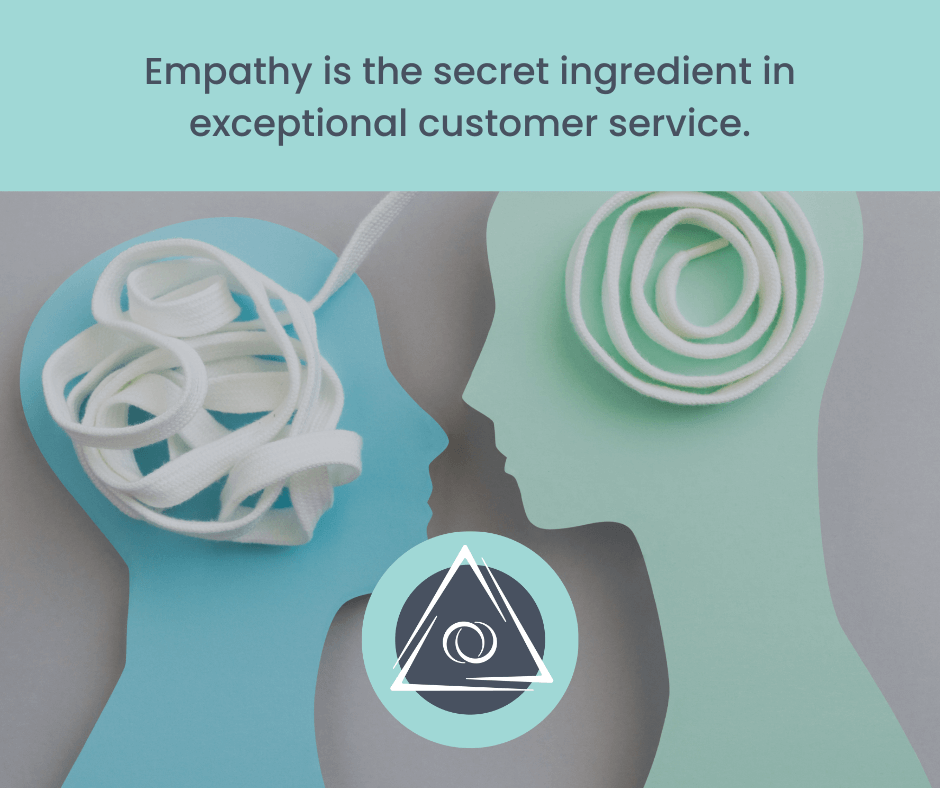Is The Customer Always Right?
A Customer's Human Right is: To Be Heard, Understood, and Respected
- 4 min read


While the adage ‘the customer is always right’ may be a simplification not true, it’s essential to remember that customers are human beings with unique needs, desires, and emotions. While they may not always be correct, customers do have a human right to be heard, understood, and treated with respect at every stage of their journey with your business. Respecting these rights is not just a good business practice but a moral obligation.

A Case Study in Poor Customer Service

Respectful Customer Service: Starts with Active Listening
I recently had a disappointing customer experience with a pool builder. Despite the high-quality installation and friendly on-site team, the project manager’s (also the business owner) communication style was severely lacking. When I inquired about project timelines, I received vague and unhelpful responses.
For instance, when I asked for an update on our pool construction, I was met with a defensive and dismissive response that implied I lacked understanding of the construction process. This was particularly frustrating, given my professional experience in the construction industry.

The Importance of Active Listening

Empathy is the Secret Sauce of Customer Service
This experience highlighted the critical role of active listening in customer service. When dealing with customer concerns, it’s essential to:
- Pay attention: Focus on what the customer is saying without interrupting.
- Ask clarifying questions: Ensure you fully understand their perspective.
- Paraphrase their concerns: Repeat their points to confirm understanding.
- Acknowledge their feelings: Validate their emotions, even if you disagree with their assessment.
Empathy is the Secret Sauce of Customer Service
Empathy is another crucial component of effective customer service. By putting yourself in the customer’s shoes, you can better understand their perspective and respond in a compassionate and helpful manner.
In the case of the pool builder, a more empathetic response might have included:
- Acknowledging the inconvenience: “I understand that waiting for your pool to be completed can be frustrating.”
- Providing a timeline: “While I can’t give you an exact date, I can estimate that the next phase should be completed by 2026.”
- Offering updates: “I’ll keep you informed of any changes or delays.”


The Power of Follow-Up

Empathy is the Secret Sauce of Customer Service
Even when interactions are challenging or negative, following up with customers is essential. Offering solutions and demonstrating a commitment to improvement can help to salvage relationships and prevent future issues.
Here are some key points to remember about follow-up:
- Offer solutions: Propose concrete steps to address the customer’s concerns.
- Follow through: Ensure that your promises are kept.
- Learn from the experience: Identify areas for improvement and implement changes.
- End things positively: Strive to leave the customer feeling heard, understood, and valued.
Ignoring a customer is never an option. A timely and appropriate follow-up can show that you are committed to customer satisfaction and help build a positive reputation for your business.
By prioritising active listening, empathy, and follow-up, businesses can create a customer-centric culture that fosters loyalty, trust, and positive word-of-mouth.
The Consequences of Poor Customer Service

One poor interaction with a customer can wipe out 20 positive ones
A negative customer experience can have far-reaching consequences. It can damage a business’s reputation, lead to lost customers, and hinder future growth. By prioritising active listening, empathy, and respect, businesses can cultivate strong relationships with their customers and foster loyalty.
Remember: Even when faced with difficult customers or challenging situations, it’s essential to maintain a professional and respectful demeanour. Doing so demonstrates your commitment to providing exceptional customer service and builds a positive reputation for your business.

"Empathy is the secret ingredient to exceptional customer service. It's the fuel that drives the journey to create lasting customer relationships. With every step, every interaction, every touchpoint, remember to listen, understand, and respond with empathy. The path to customer excellence is paved with compassion and care."
Help Your World, Share Me!
Information is key to unlocking positive change, please share with anyone that you know that might need a boost from mental burnout.
